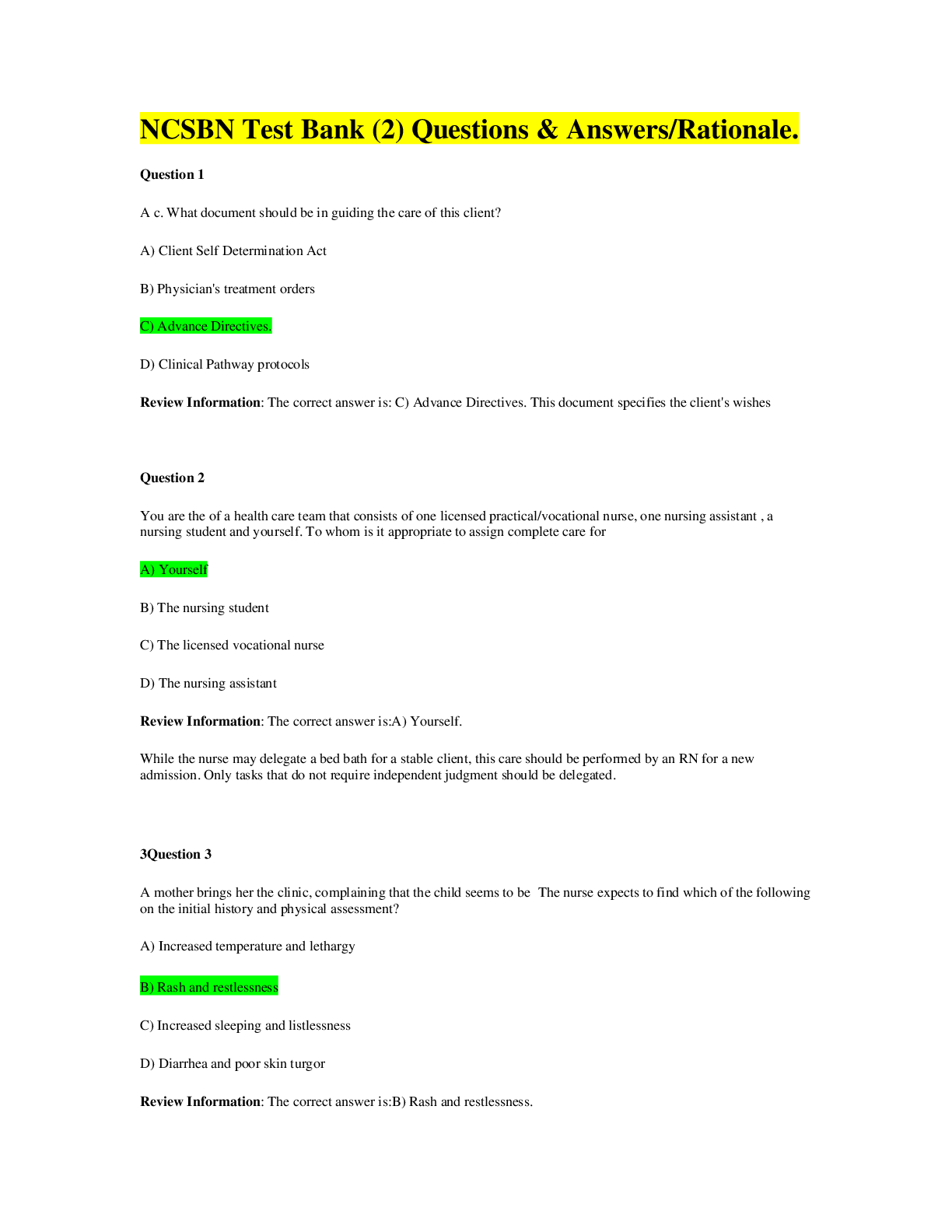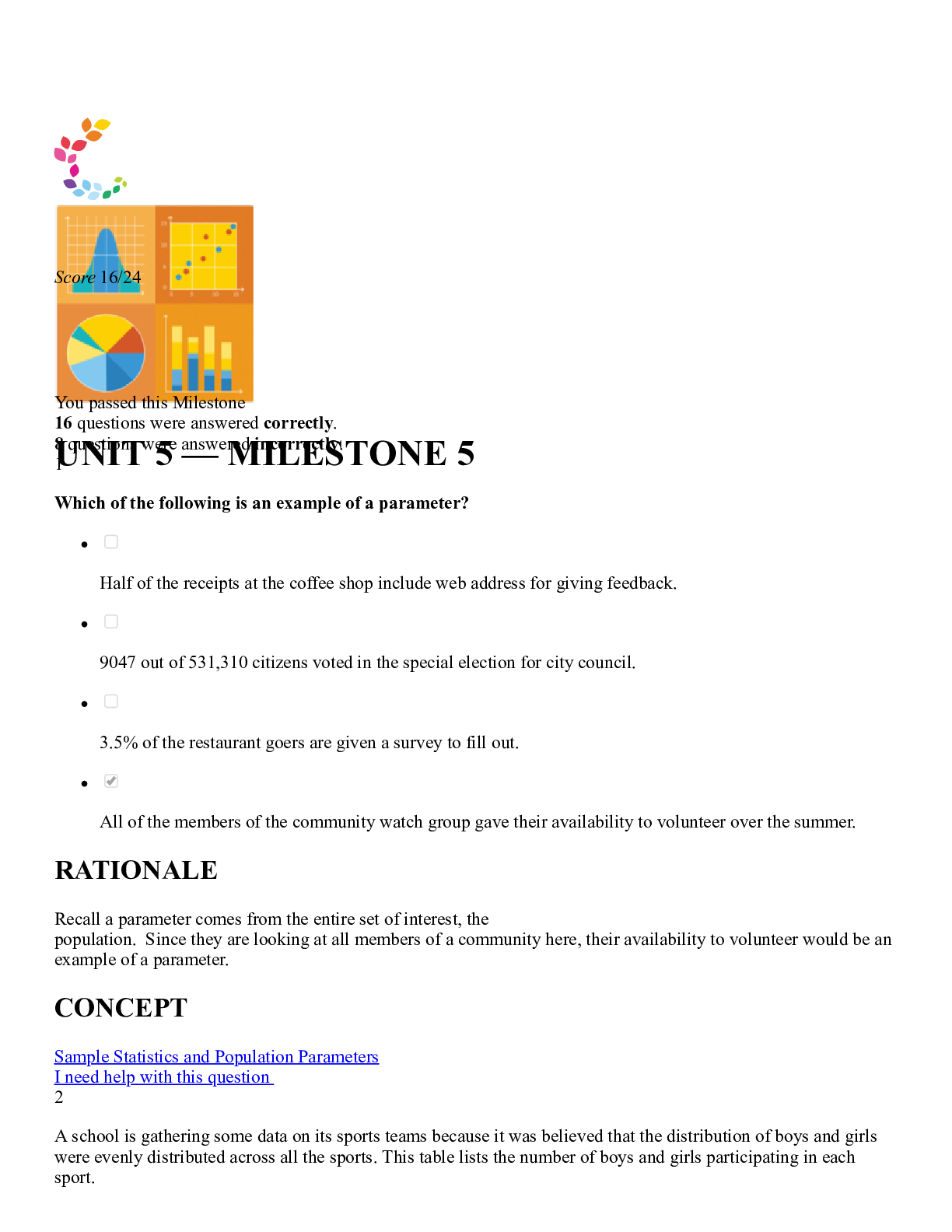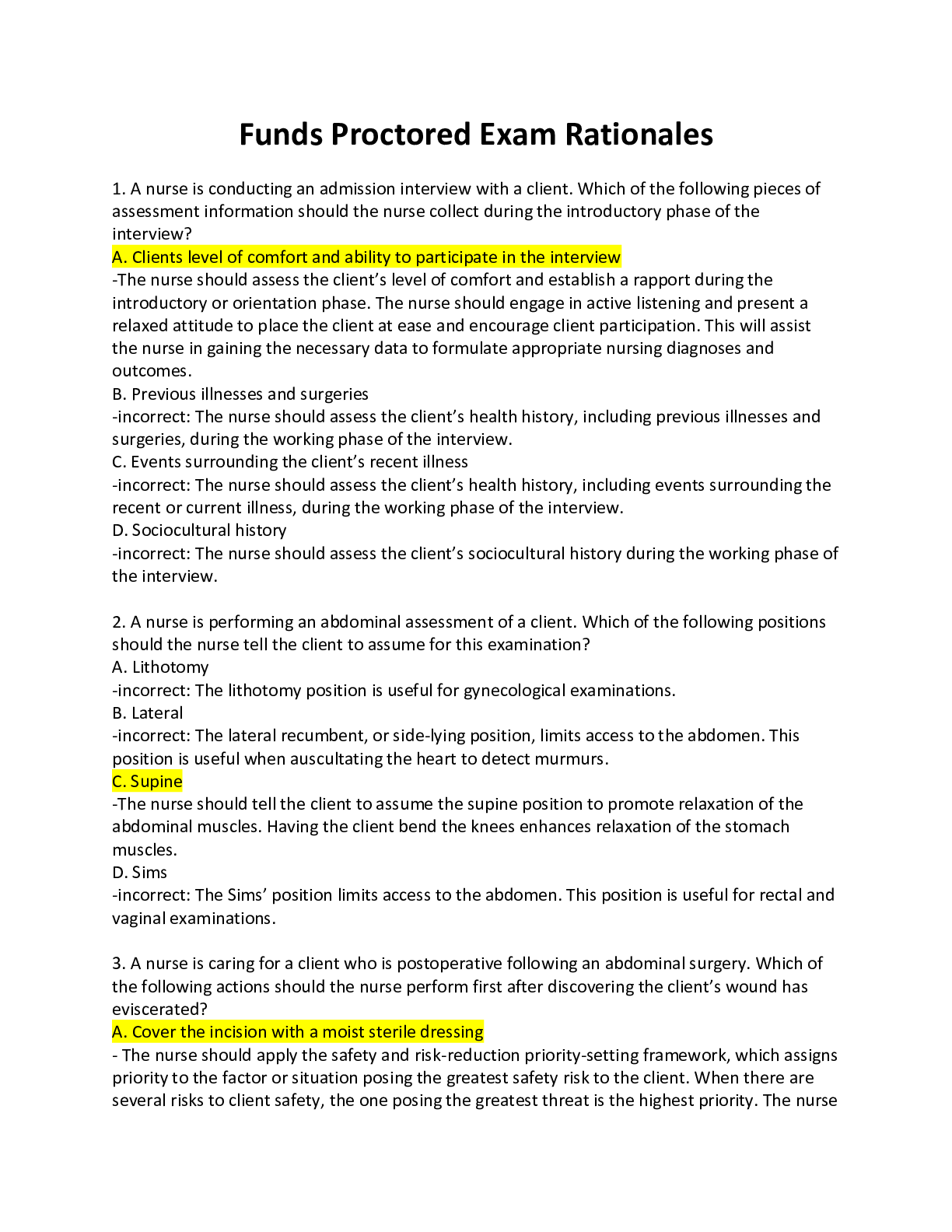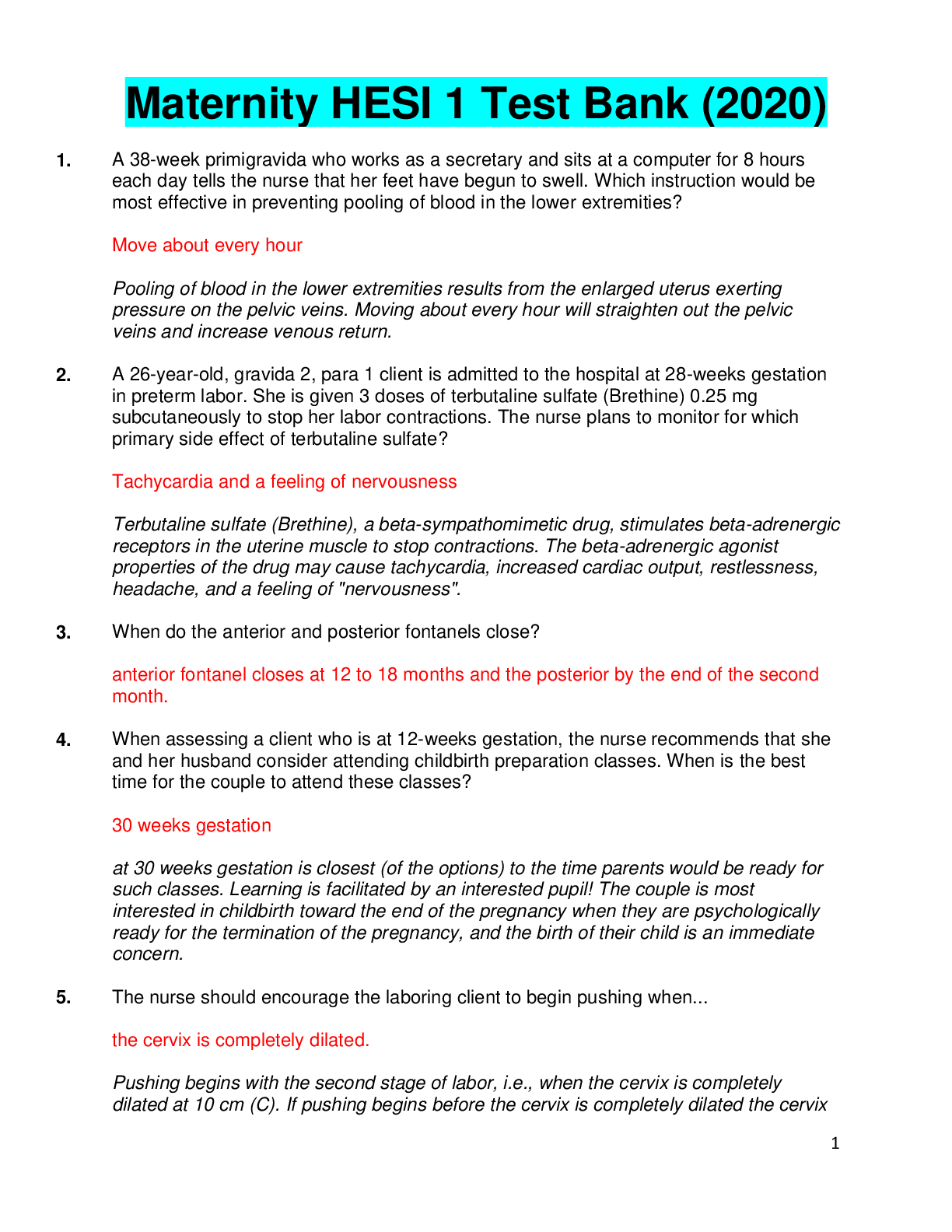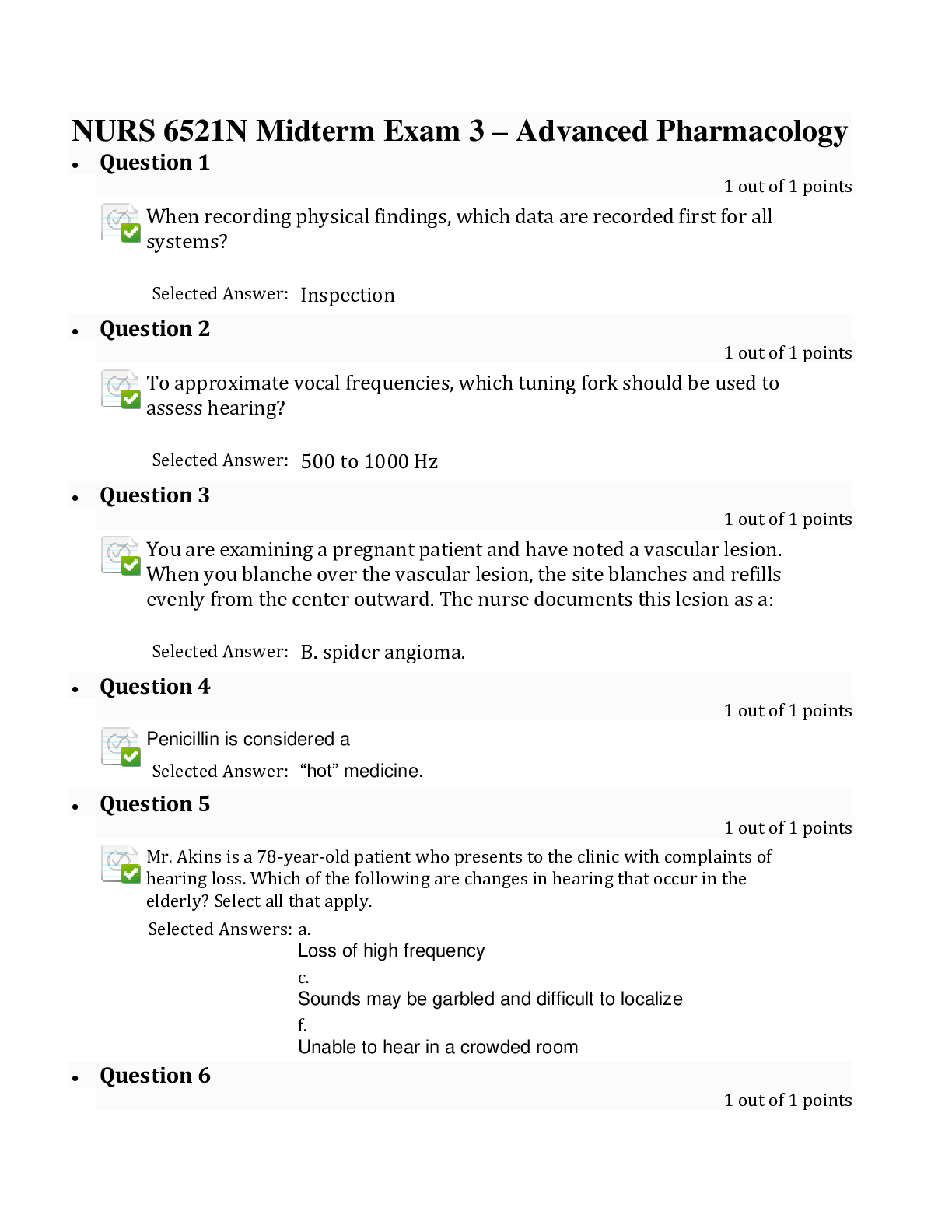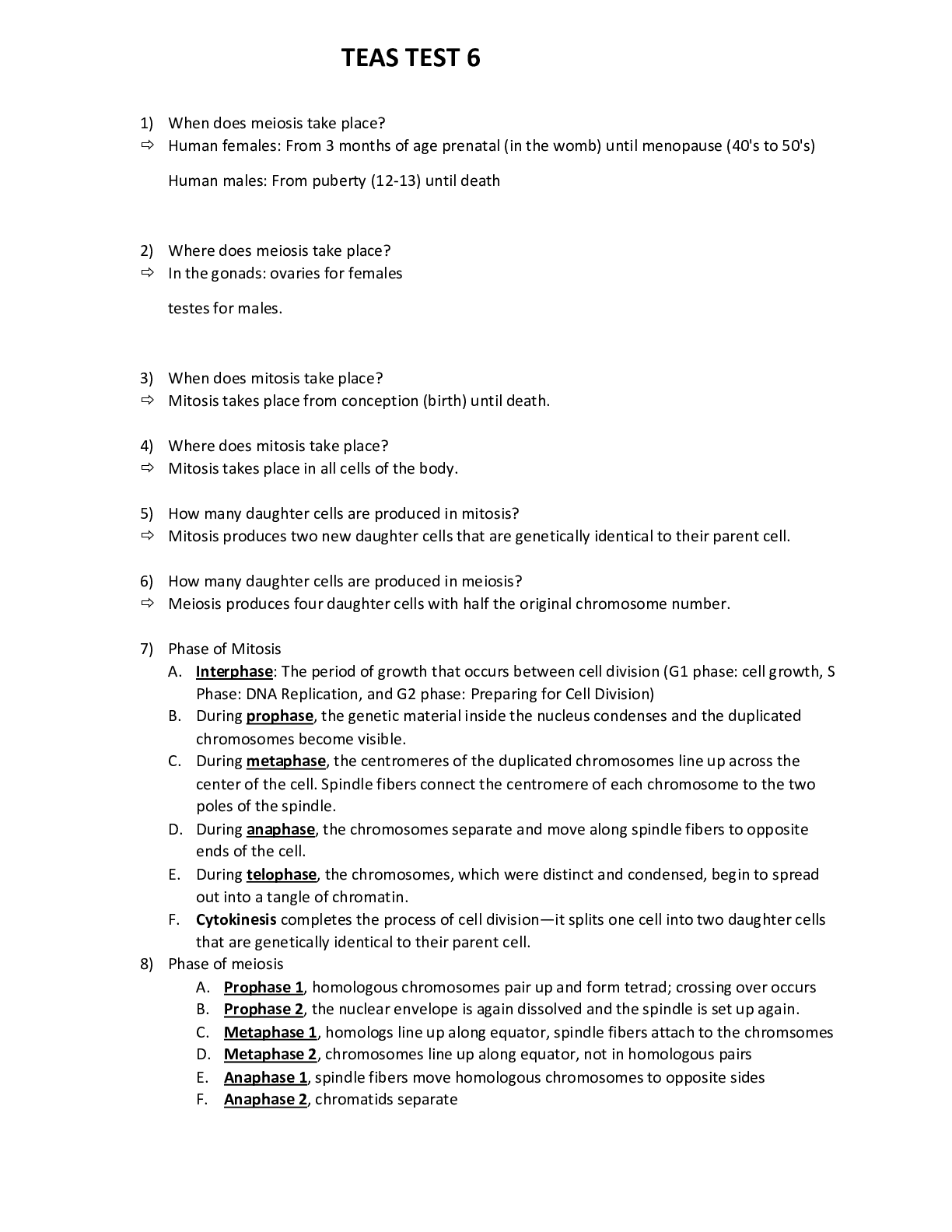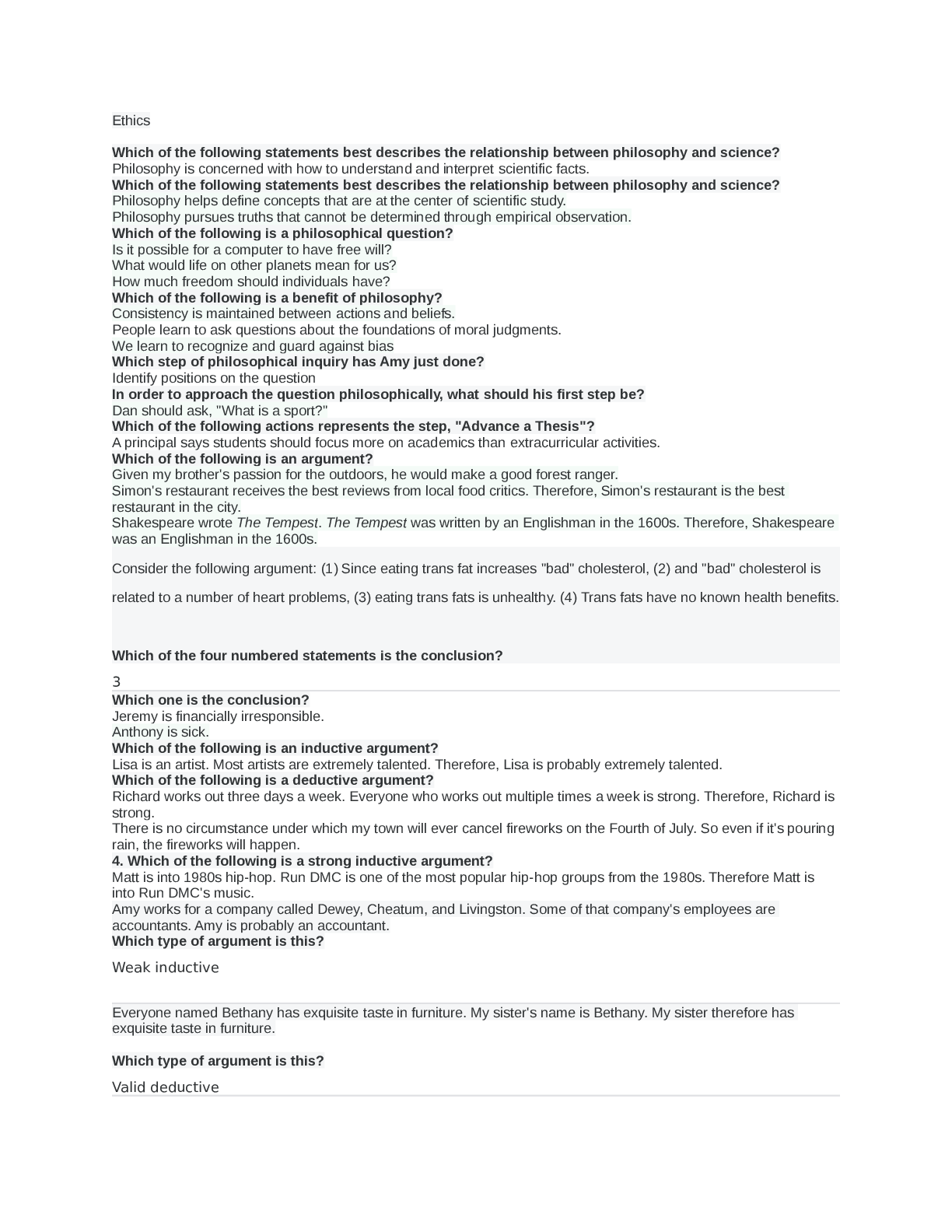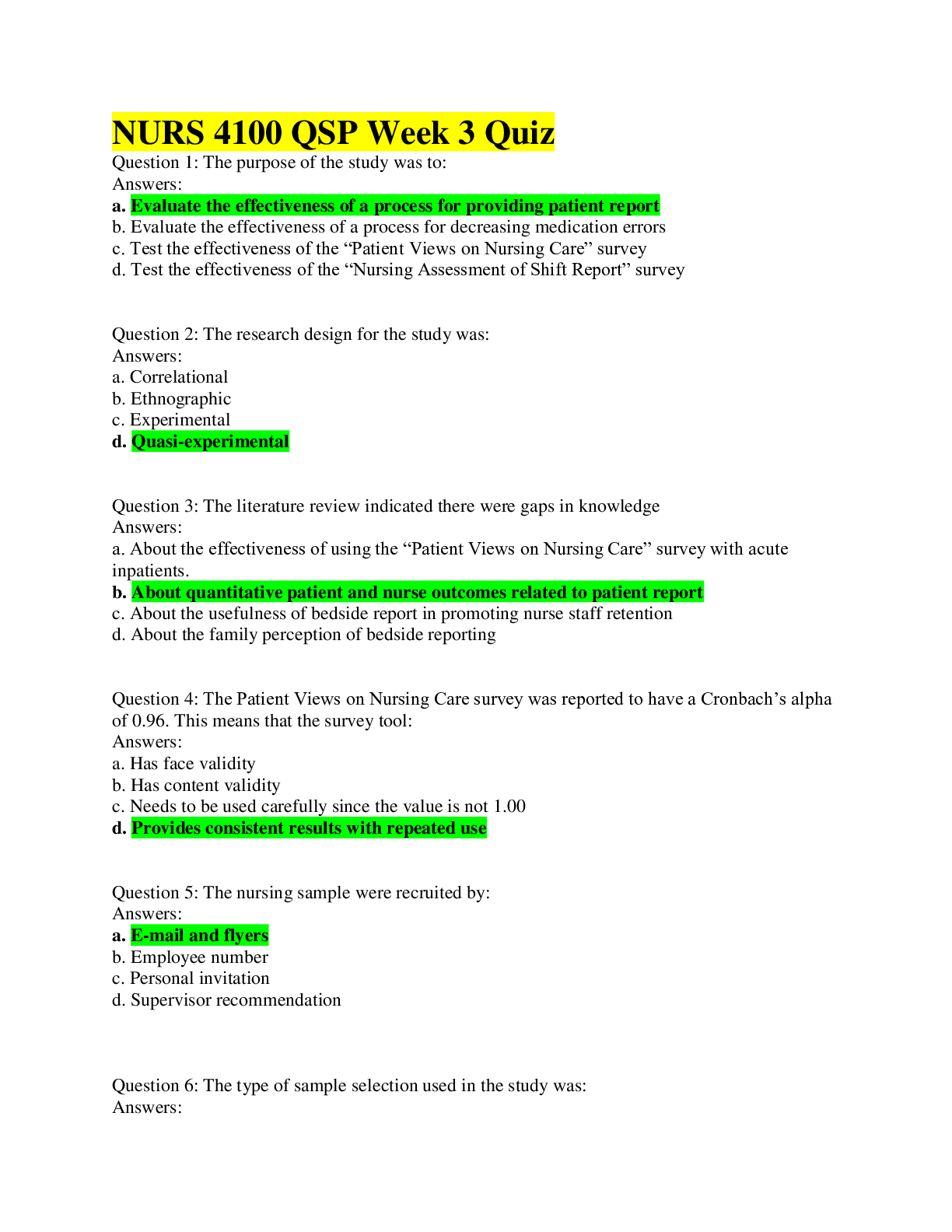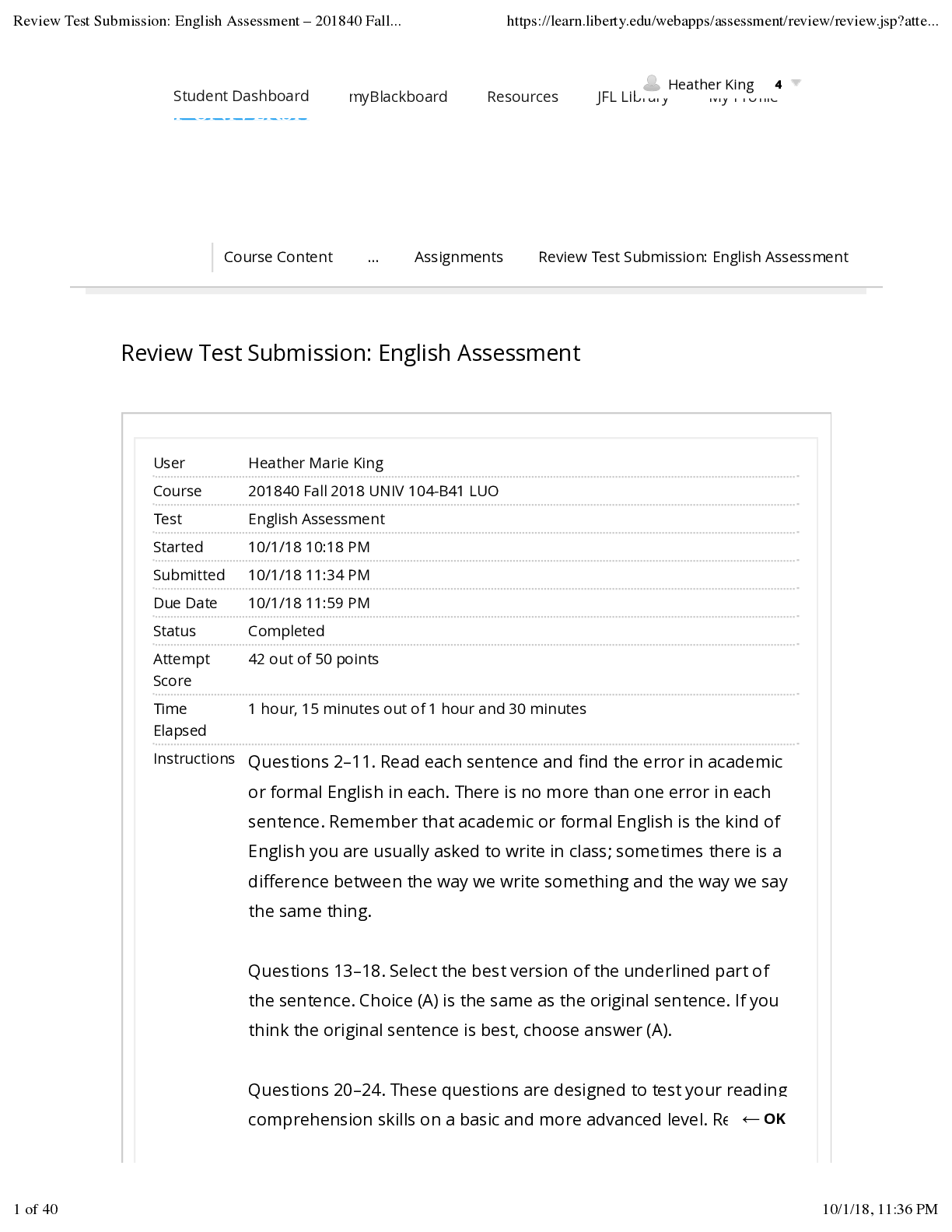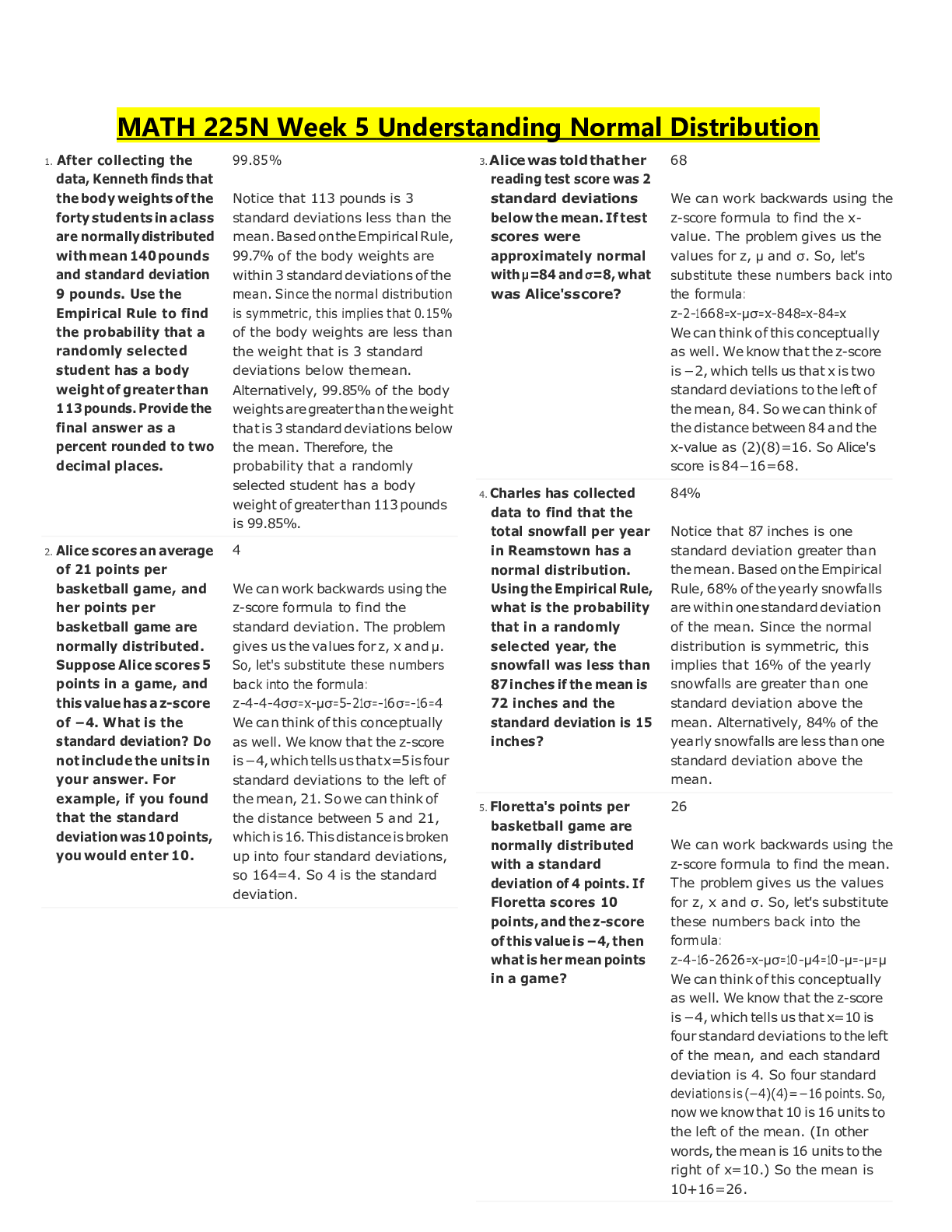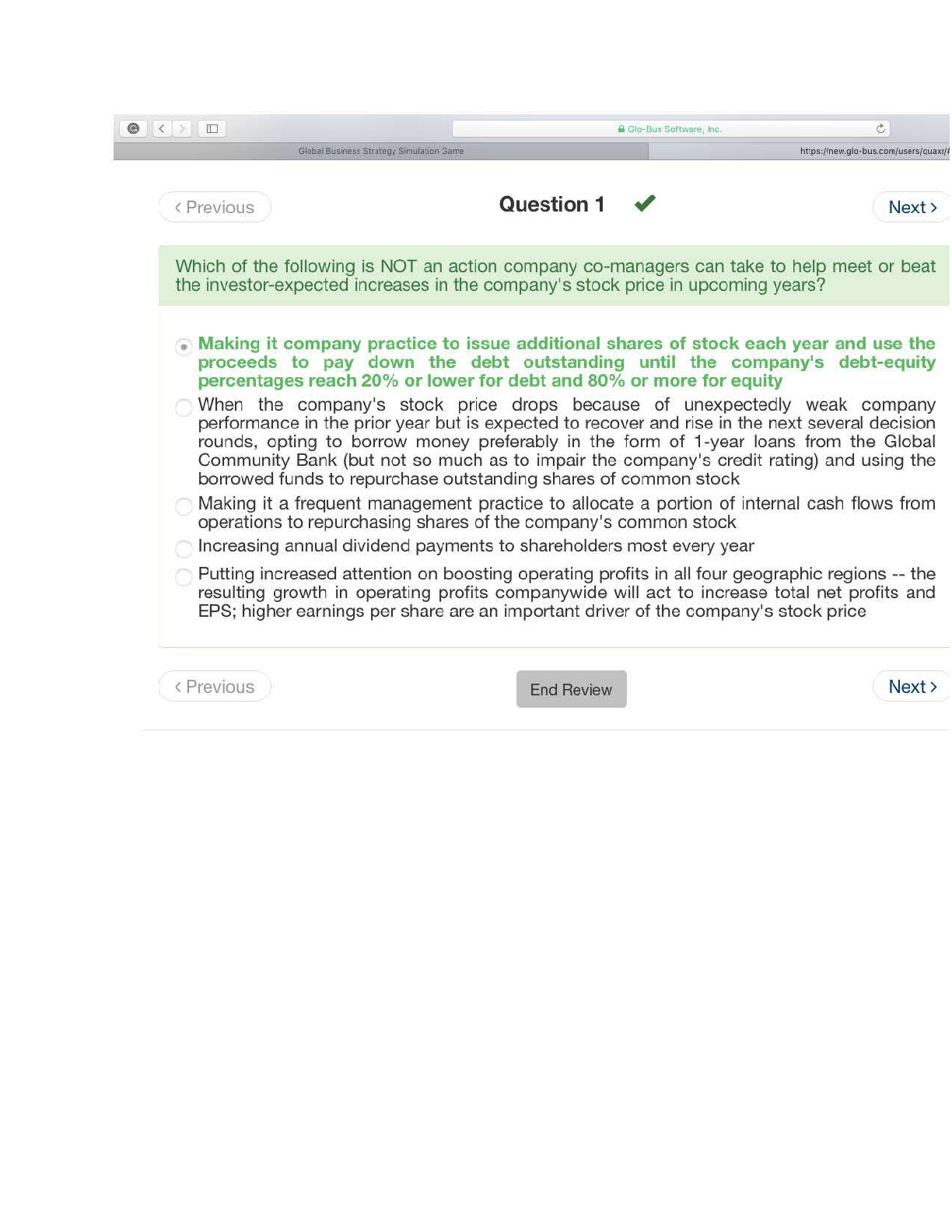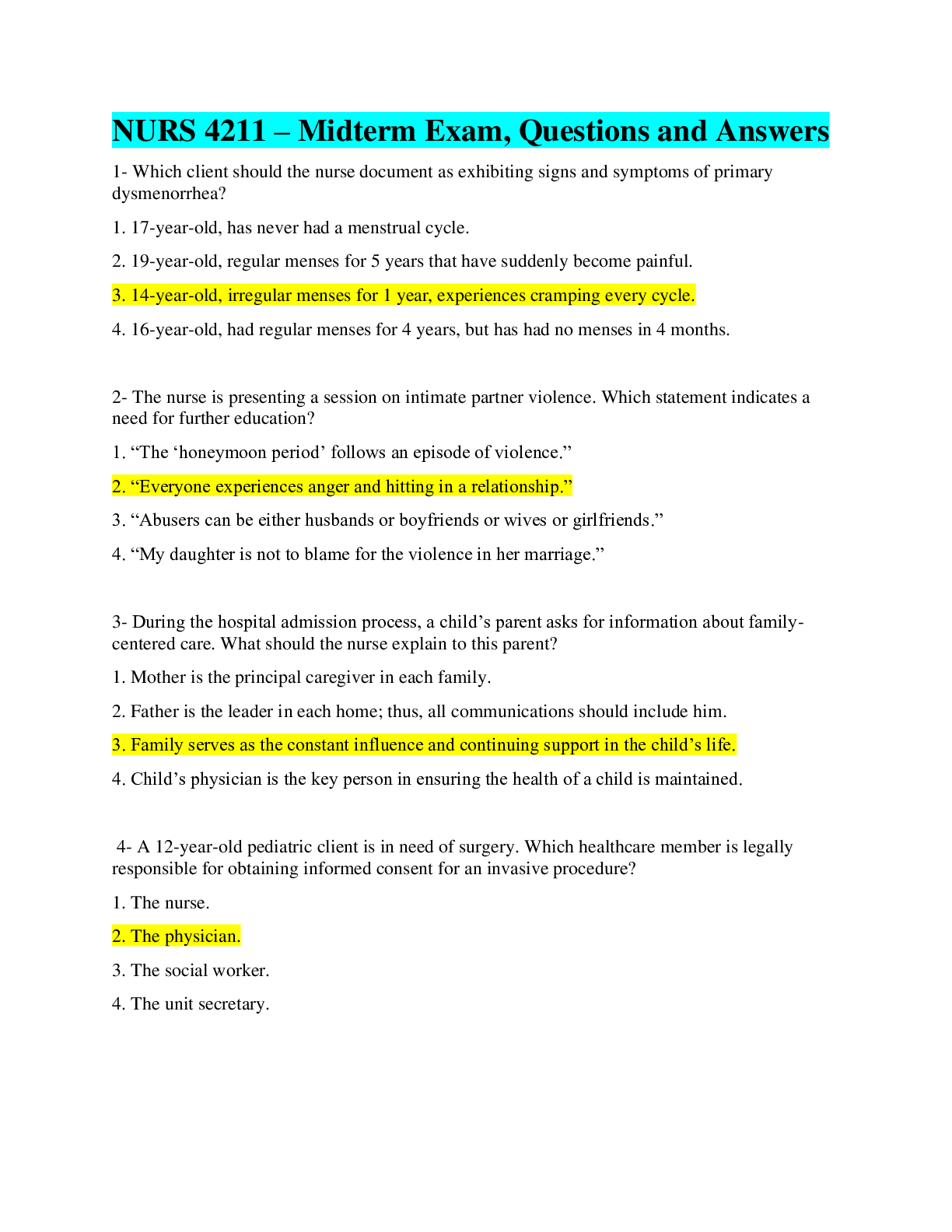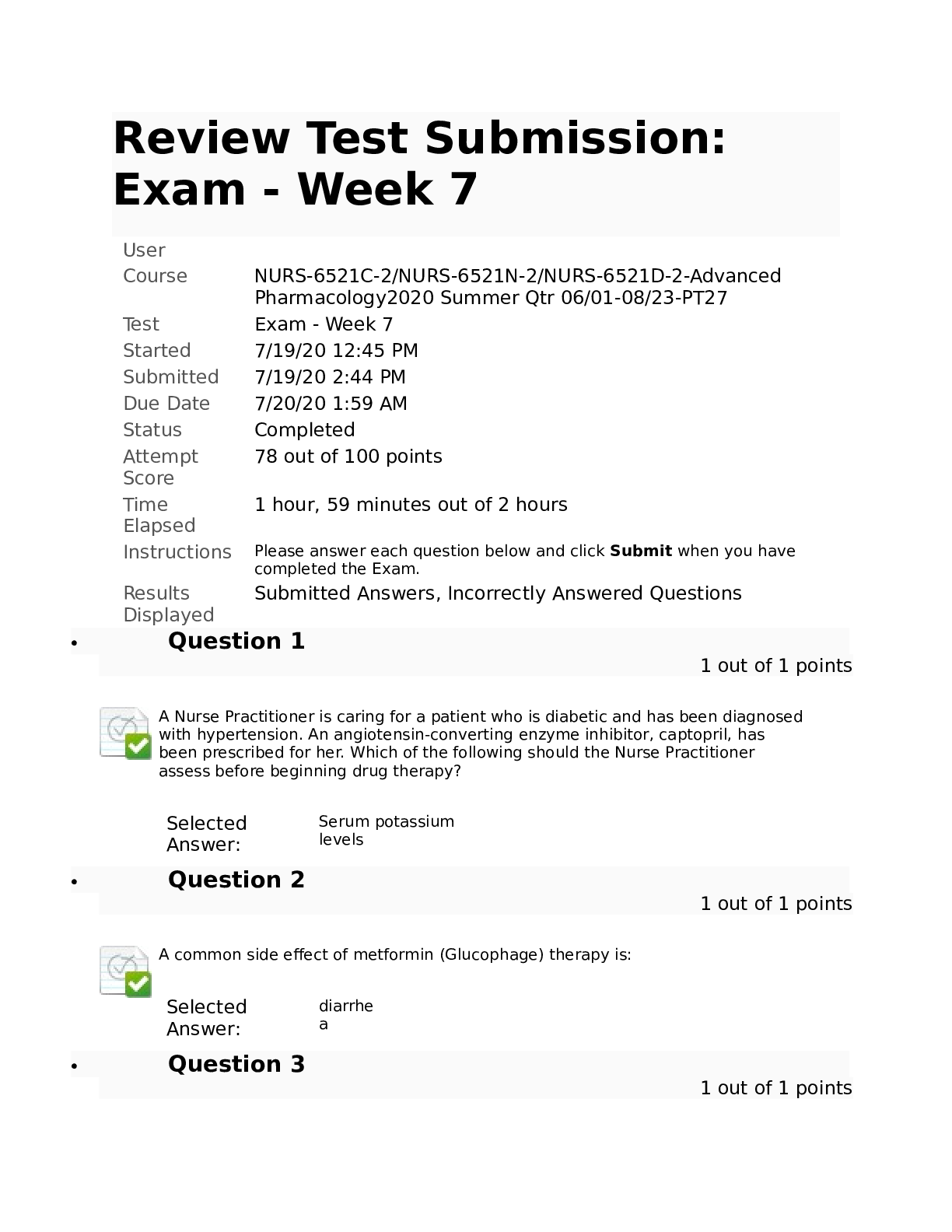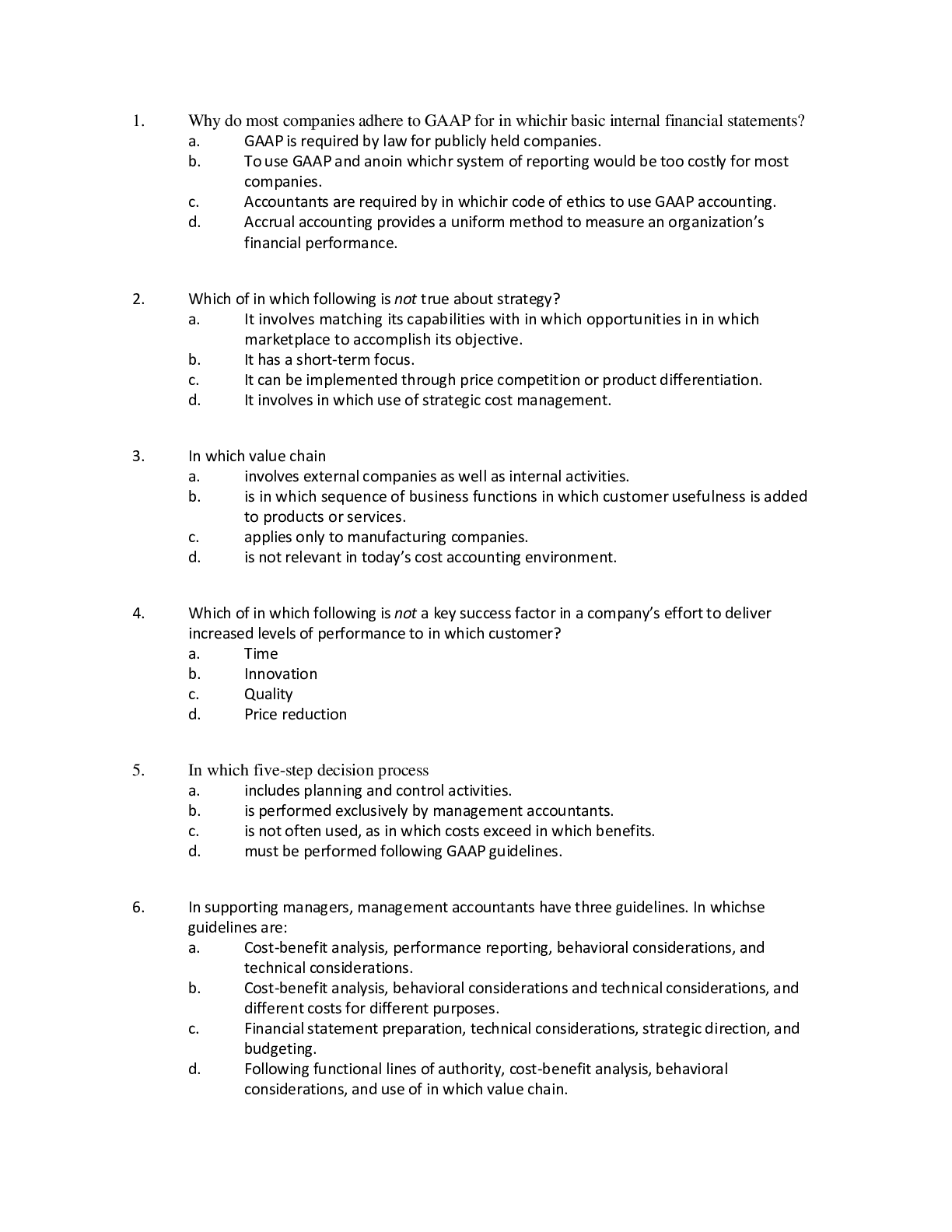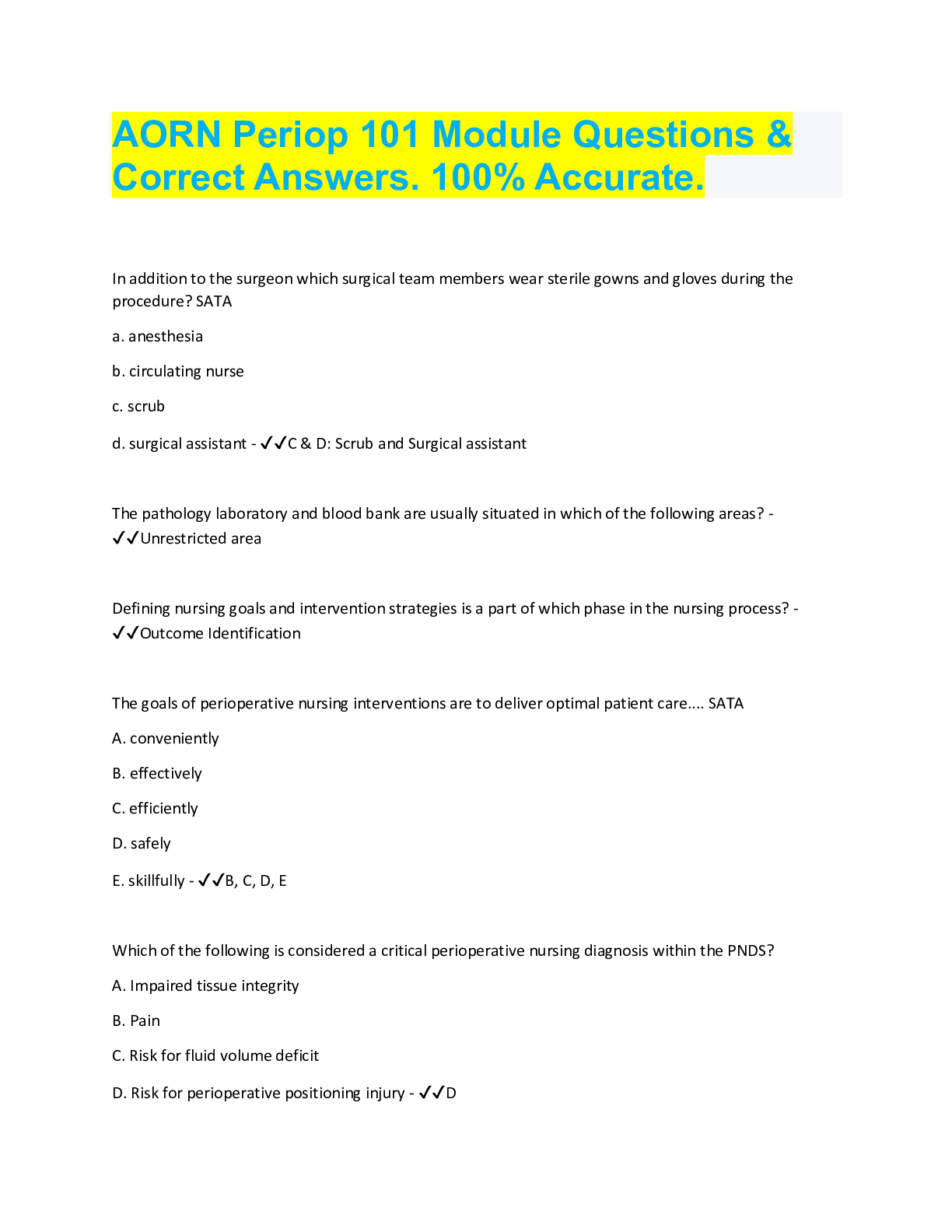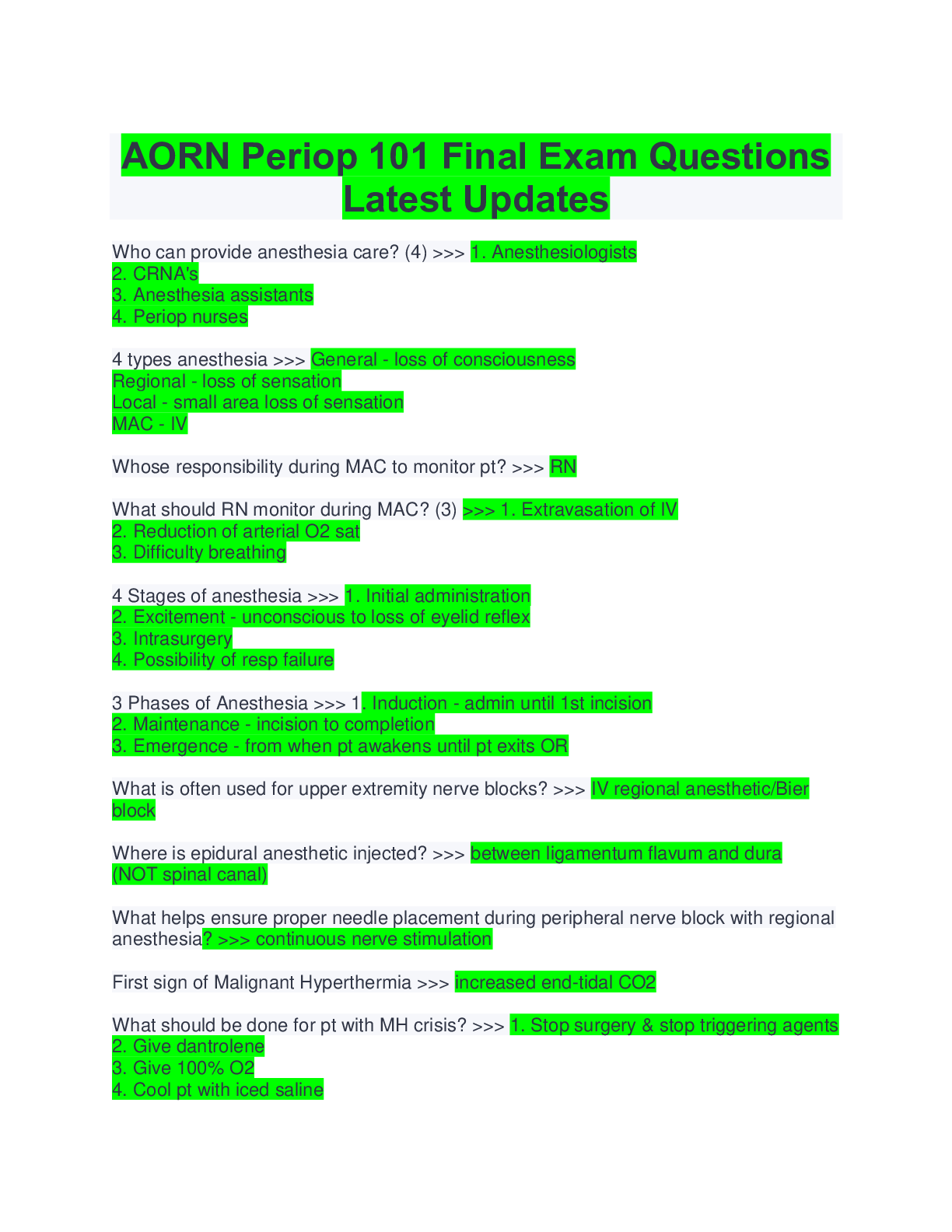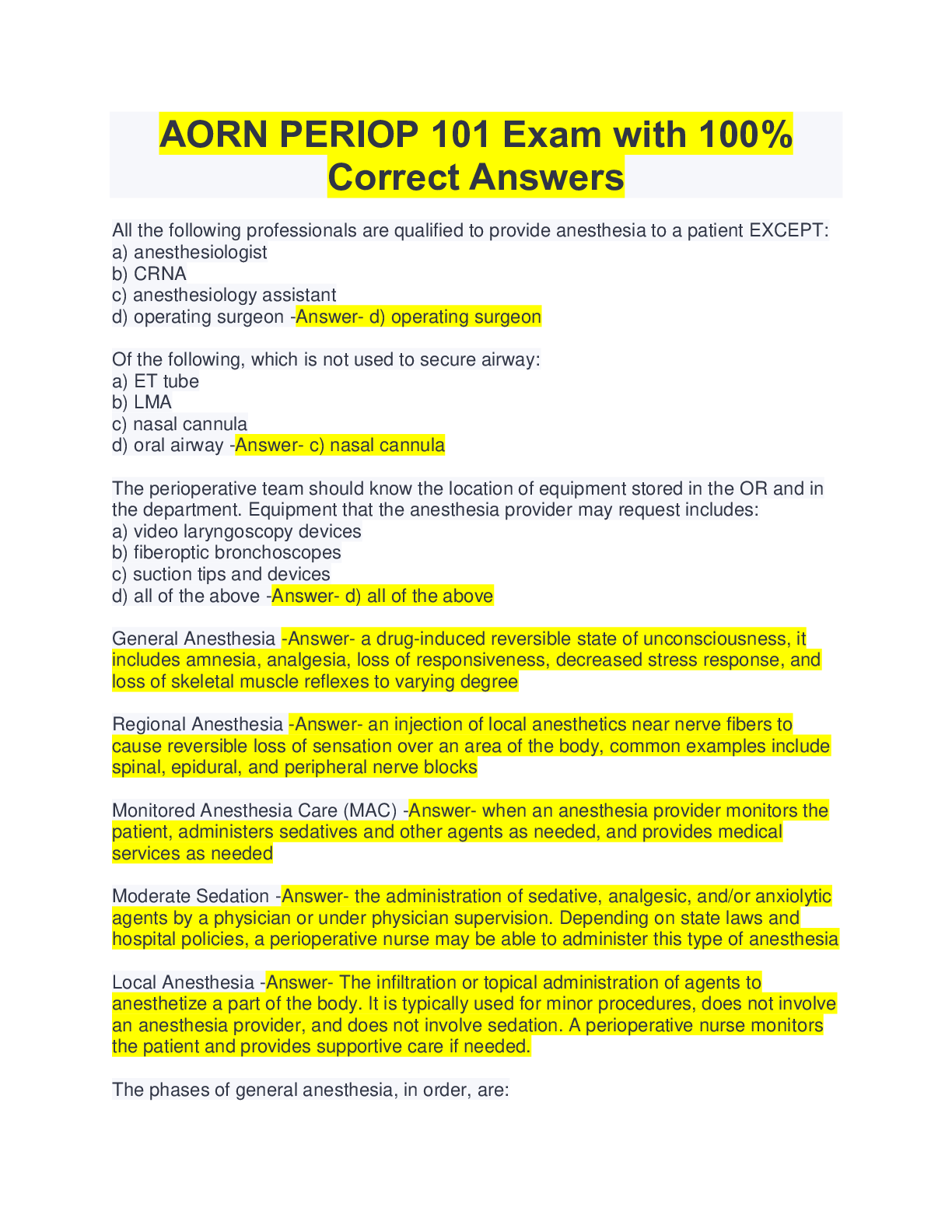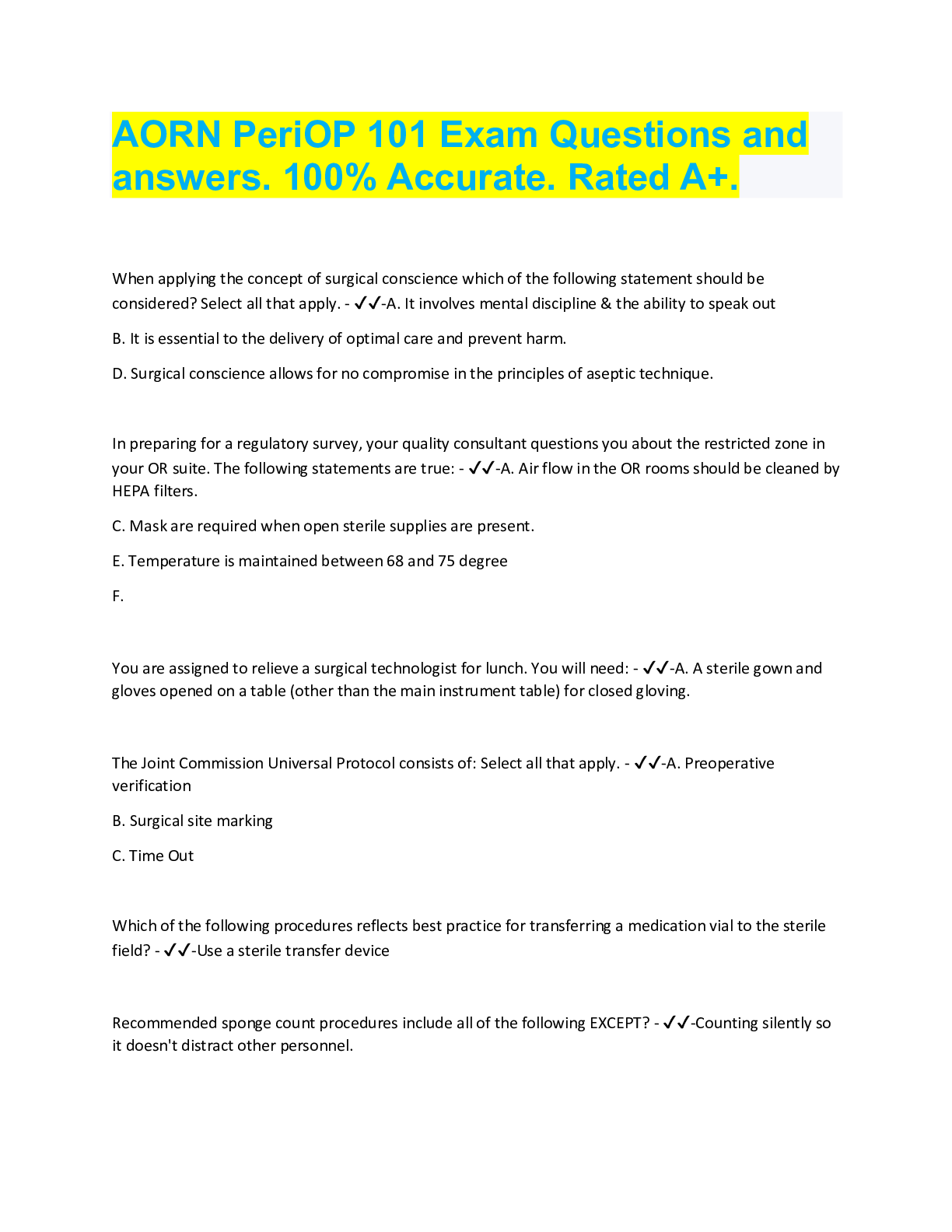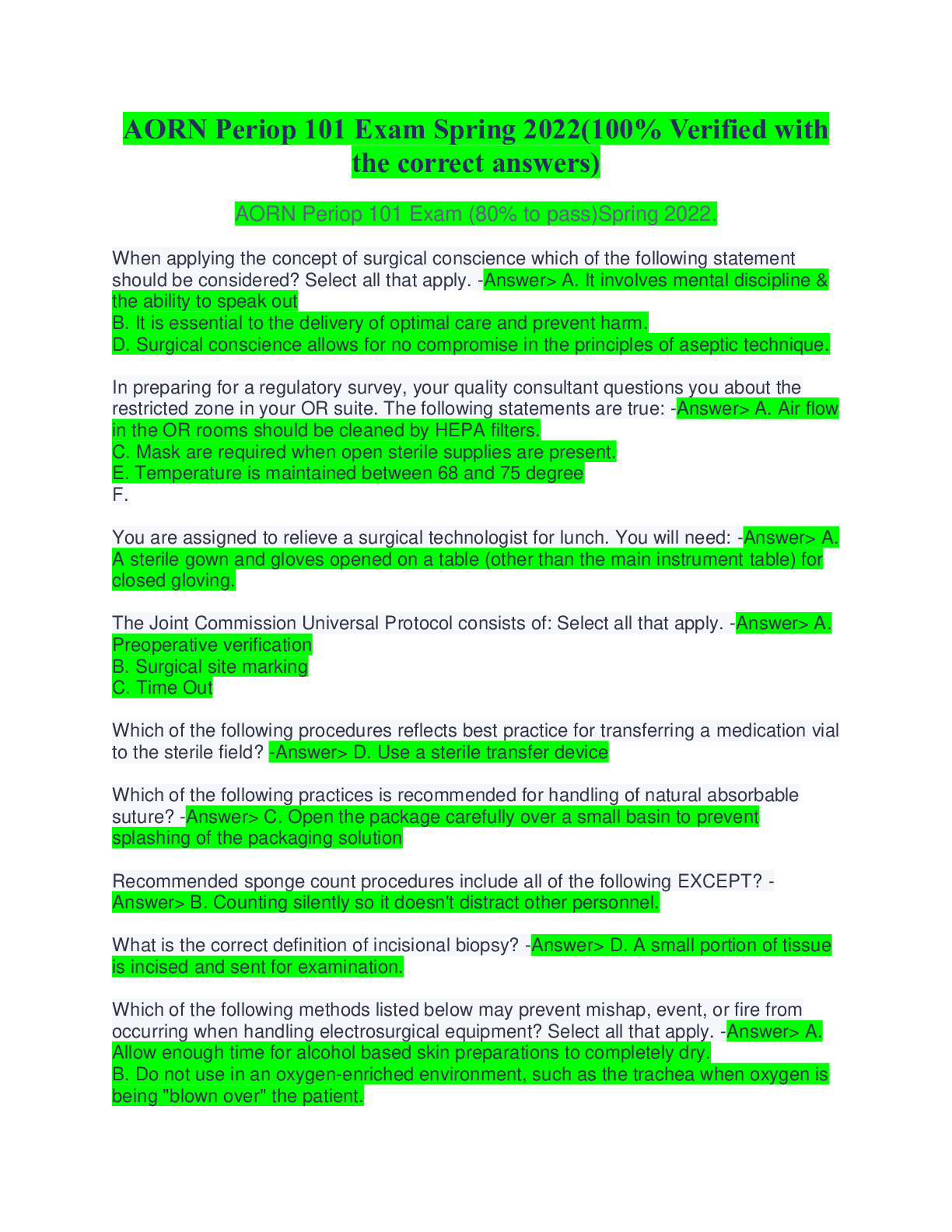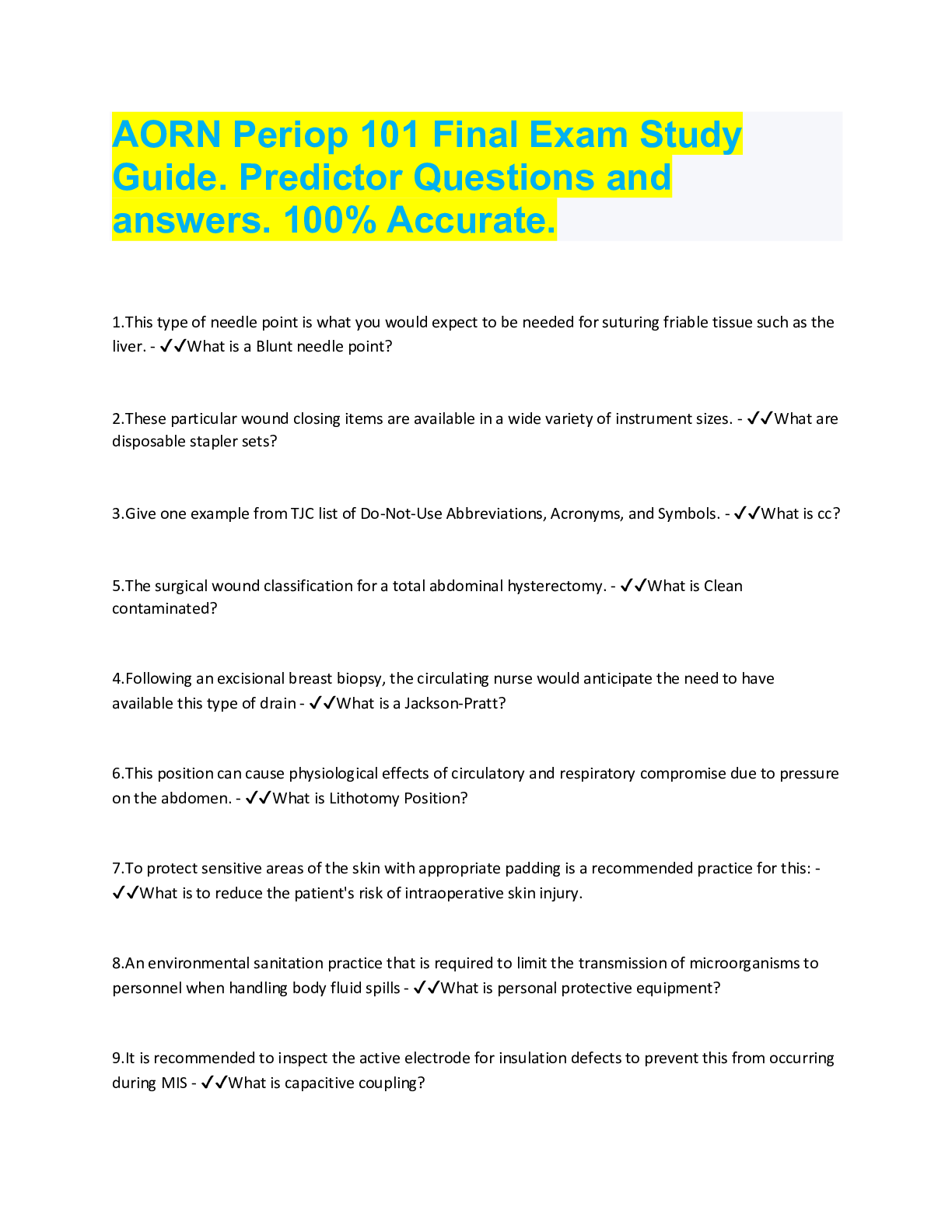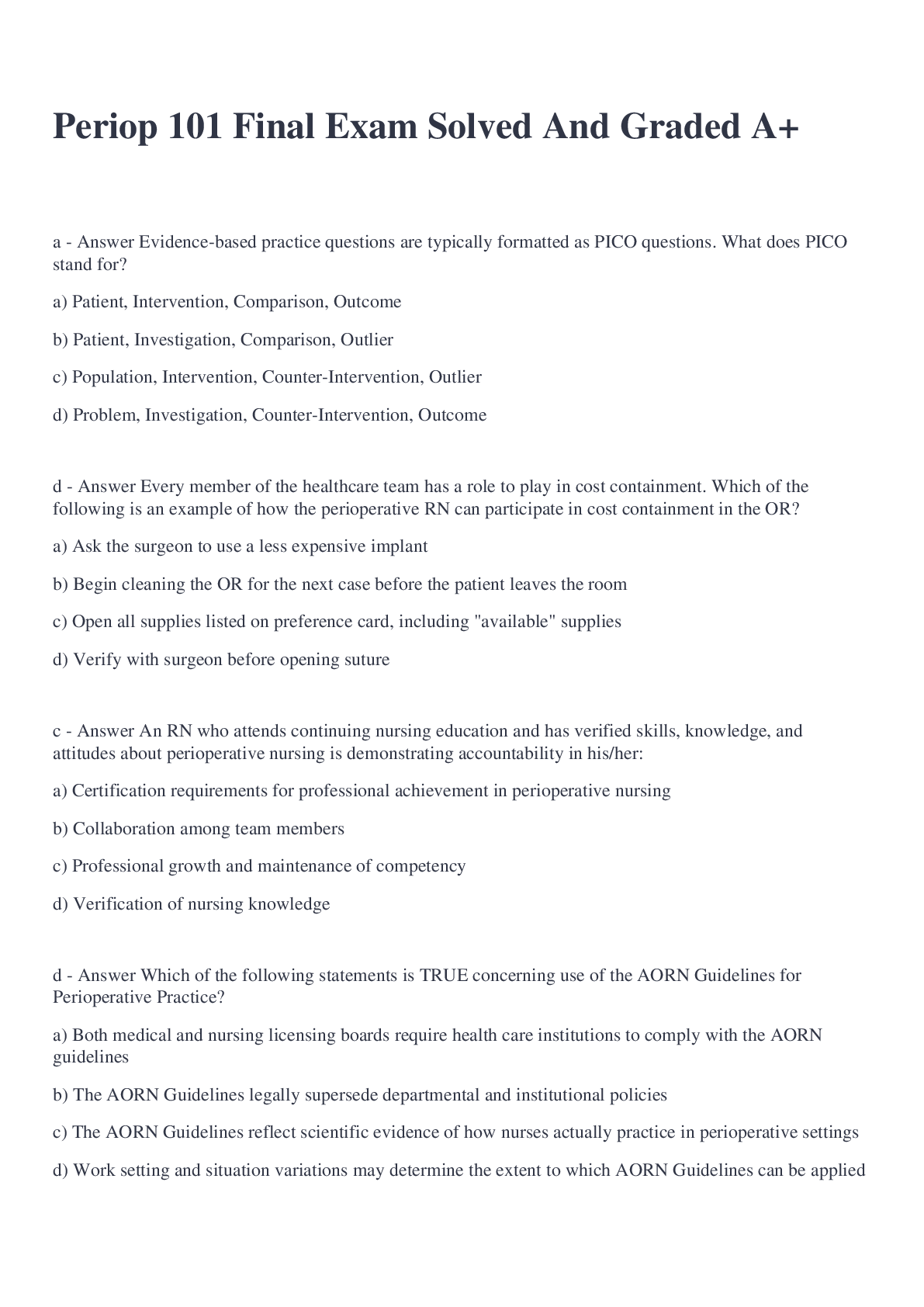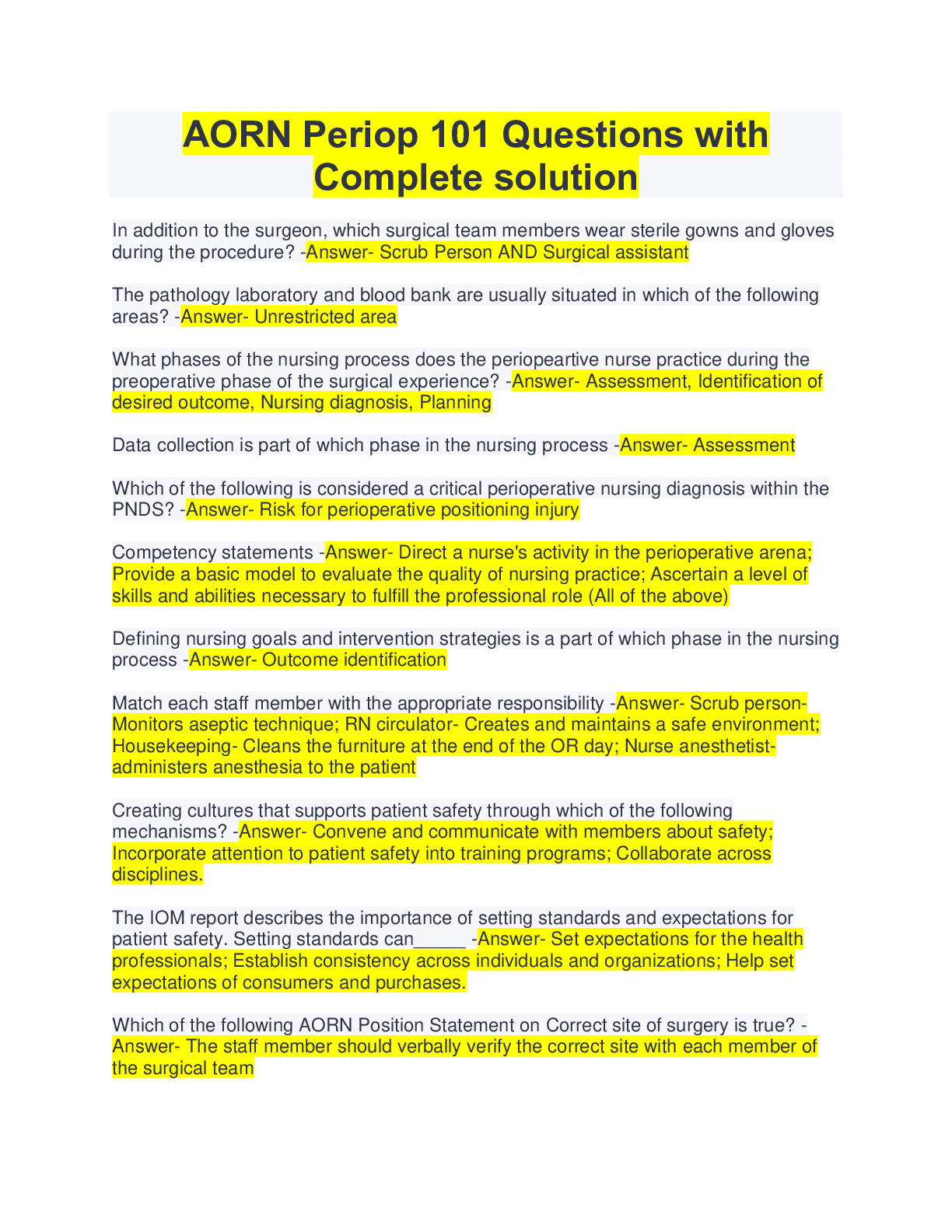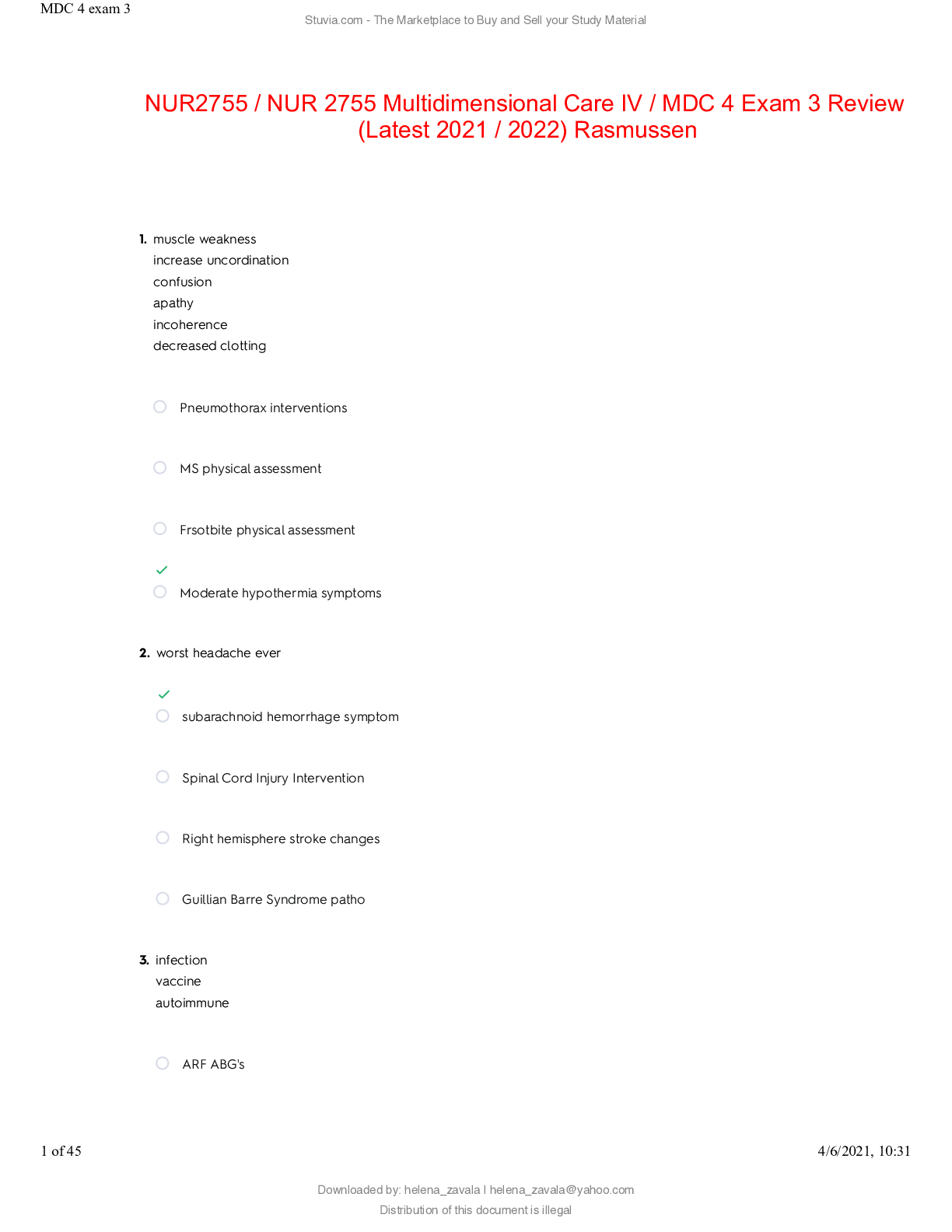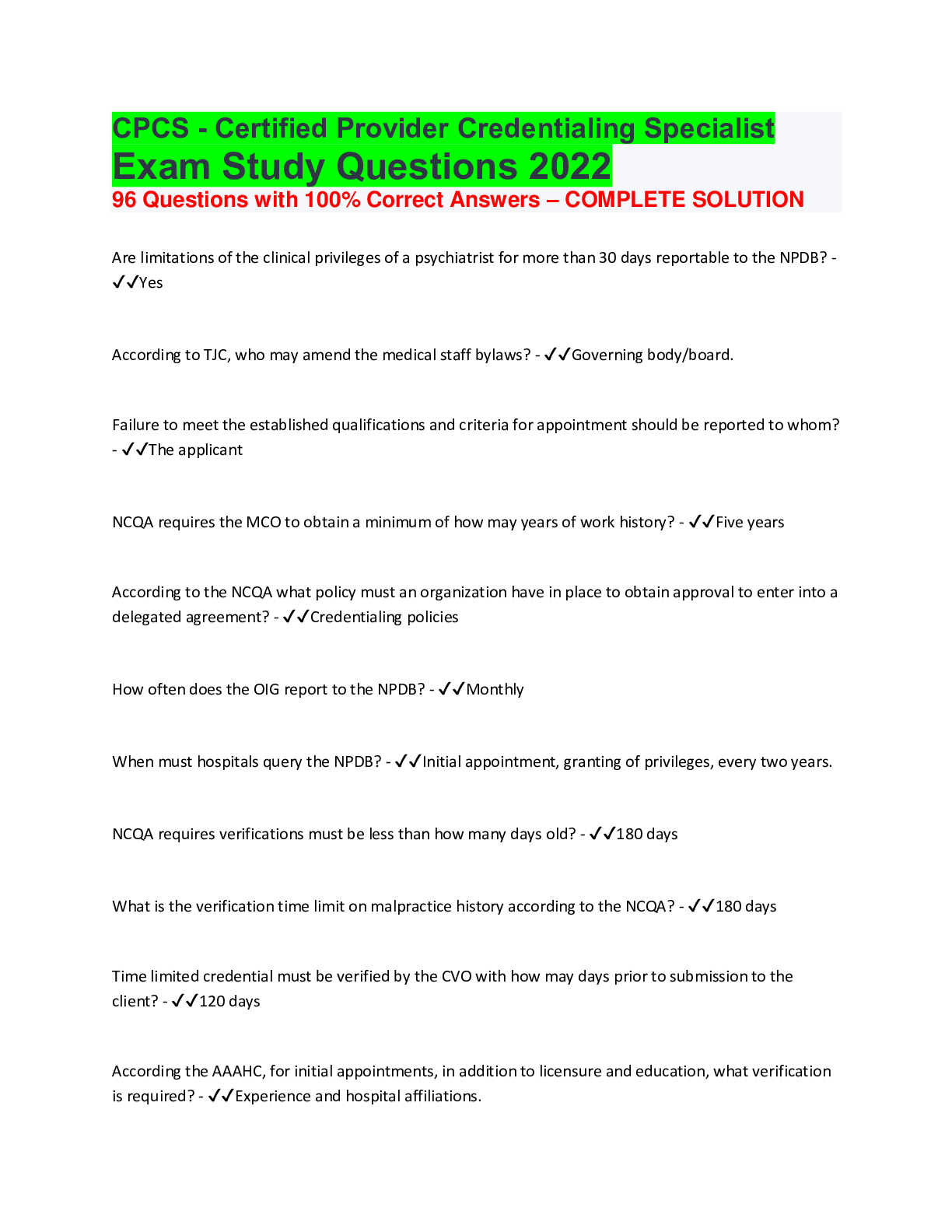Psychology > QUESTIONS & ANSWERS > PSYC 290N Week 7 Course Project II: My Virtual Life – Late Adulthood: Section 3–60 to 80 years. (All)
PSYC 290N Week 7 Course Project II: My Virtual Life – Late Adulthood: Section 3–60 to 80 years.
Document Content and Description Below
PSYC 290N – Week 7 Course Project II – Late Adulthood My Virtual Life – Late Adulthood Regardless of whether you are a parent or step-parent in your virtual life that you are leading, why do... you think many parents report difficulties in maintaining or increasing intimacy with their adult children? In your answer, consider that for some parents their children often provide a perceived source of validation of their own beliefs, values, & st&ards. What are some reasons why or how children might resist their parents' desires to maintain a close intimacy with them? Sometimes older adults hesitate to give their adult children or other family members unsolicited advice or feedback because it might cause tension in the relationship if that feedback is negative. How do you feel about giving younger adults your advice or opinions, particularly if it might cause tension? Are there times when it is appropriate or inappropriate to give someone unsolicited advice? Draw on your own experiences or even your virtual person to provide examples. Based upon the theory & research about mid-life crises discussed in your textbook & class, how might you explain a 40-something-year-old family member's sudden change towards unpredictable behaviors & emotionality? How can involvement in civic or religious activity buffer you against stress effects? Give some examples from your personal life. What are some reasons why you or your friends might continue to work past the age of retirement? Imagine you are 65 years old & you are experiencing conflicts with your adult children over a number of things: communication & style of interaction; lifestyle choices & habits; parenting practices; values, religion, ideology, & politics; work habits; & st&ards of household maintenance. How might you approach these conflicts or communicate with your children about them? Which differences could you feel at ease with & which would really bother you? What employment problems might an older person face that could be the result of their age? What are some internal & external factors that might contribute to a positive outlook about aging? According to Nancy Schlossberg, there are multiple paths of retirement that adults may follow. (a) Continuers; (b) Involved spectators; (c) Adventurers; (d) Searchers; (e) Easy gliders; (f) Retreaters. Which of these paths seem most probable for you? Why? How much & in what ways are older persons like yourself influenced by gender identity beliefs? Do you think that gender issues are of concern for older adults? What factors might lead a person to select gender atypical activities & life roles? Some of the best predictors of successful aging are an individual's general outlook on life & his or her ability to adapt to life's events-expected & unexpected! Looking back over your virtual life, which experiences could contribute to successful aging, & which could have put you at risk for unsuccessful aging? What are the benefits of connecting with others throughout life & particularly during Late Adulthood? If you could do your virtual life over, would you do anything differently? What model would you use to describe your coping with death & dying? Use your textbook to identify the model & describe how the stages you confront might be played out in your late adulthood years. Comment on previous experiences in your life (in childhood, adolescence, or emerging adulthood ages) which might also contribute to such a response. Do you expect to have a sense of ego integrity or ego despair as you move into & through late adulthood? What might make you more or less likely to have a sense of integrity? What decisions might you have made either now or in your virtual past to cope differently with either negative or positive experiences you have had in your virtual life? Why are siblings such an important factor in elderly individuals having successful coping skills? Does this mean that aging persons without siblings (either due to loss or perhaps because they were an only child) are more at risk for problems in coping with aging? How might only children compensate for lacking siblings & have positive outcomes in later adulthood? As a projective assignment, write your own obituary about your virtual life. What significant others in your life remain after you? What would you list as your meaningful moments or accomplishments, either those addressed within this virtual life course, or drawn from experiences not mentioned previously? You can write this from an observer's point of view (third-person), or from your own perspective (first-person) as an autobiographical letter. Your instructor will provide you with more details about this assignment Edition [Show More]
Last updated: 1 year ago
Preview 1 out of 6 pages

Reviews( 0 )
Document information
Connected school, study & course
About the document
Uploaded On
Apr 25, 2020
Number of pages
6
Written in
Additional information
This document has been written for:
Uploaded
Apr 25, 2020
Downloads
1
Views
432

